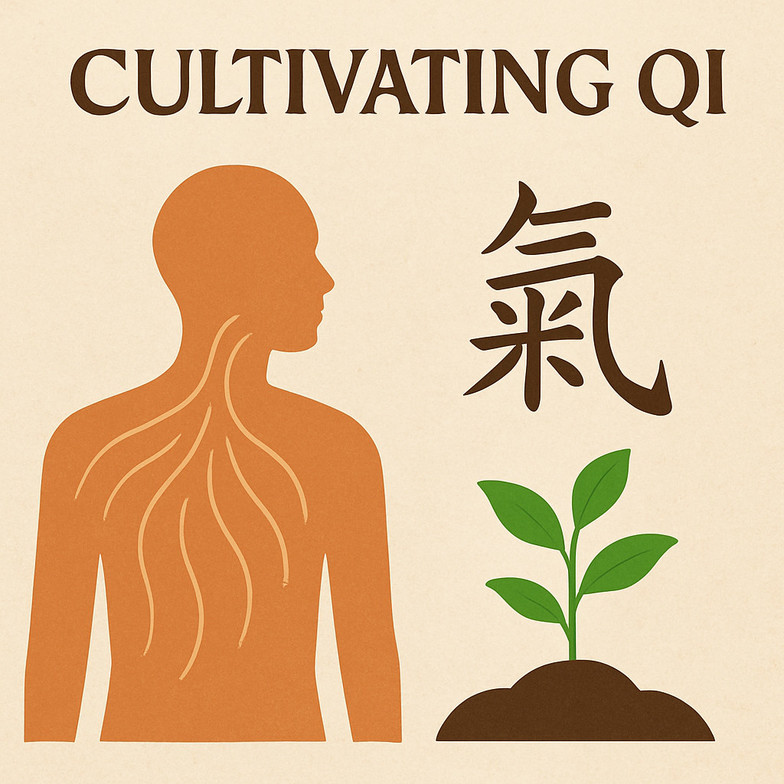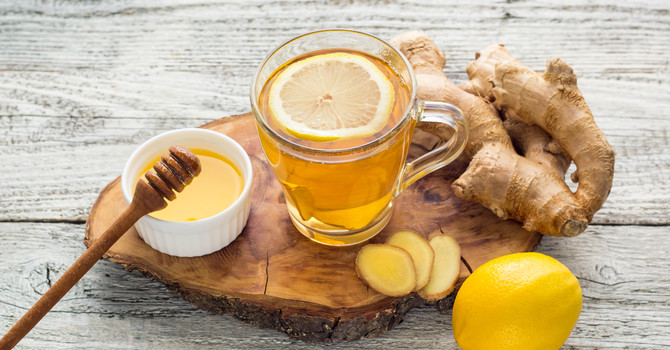
When I first began receiving acupuncture, I didn’t think much about Qi. In fact, like many people, I wasn’t even aware of the concept. But over time—first as a patient, then a student, and now as a practitioner of Chinese Medicine—cultivating Qi has become a guiding principle in my work and in my life.
You see, the cultivation of Qi is essential to health. And while it may sound like an abstract idea, it’s actually something that each of us can engage with in simple, tangible ways.
As a practitioner, cultivating Qi isn’t just about my own wellness—it’s also about how I show up for my patients. Acupuncture is a form of energy medicine, and my own Qi directly influences the quality of each treatment I give. That’s a big motivator for me to care for my own Qi—because doing so supports my ability to help others thrive.
What Is Qi?
In Traditional Chinese Medicine (TCM), Qi (pronounced “chee”) is the vital life force that animates the body and mind. The concept can be hard to define because Qi is both material and immaterial—it flows through the meridians, fuels organ function, and reflects our overall vitality.
All of the organs in Chinese Medicine depend on Qi to function properly. When Qi becomes depleted or stagnant, it can cause imbalance and dysfunction—not just in one organ, but across systems. So supporting and cultivating Qi is key to maintaining or restoring health.
Where Does Qi Come From?
According to TCM, we receive Qi from three primary sources:
- Inherited Qi (Prenatal Qi): This is the Qi we’re born with, passed down from our parents. We can’t change this, but we can preserve and protect it.
- Food Qi: This is produced by digesting the food and drinks we consume.
- Air Qi: This comes from the air we breathe.
While we have no control over Inherited Qi, we do have influence over Food and Air Qi. And two key factors affect our ability to generate them:
- The input itself (what we eat, drink, and breathe)
- The functioning of our organ systems, especially those related to digestion and respiration
Take Food Qi, for example. Choosing nourishing foods is important—but if the digestive organs aren’t functioning well, the body can’t fully extract the Qi from those foods. Instead, it may produce dampness or other pathological by-products. Acupuncture can help by supporting digestive function and improving overall balance. At the same time, I work with patients to make conscious food choices that support their Qi. These two pieces—what we consume, and how well we digest—are intimately connected.
The same is true for Air Qi. Clean, fresh air is vital—but so is how we breathe and the health of our lungs and related organs.
How to Cultivate Qi in Everyday Life
We’ve already covered a few ways to support Qi: eating well, receiving acupuncture, and breathing clean air. But cultivating Qi goes deeper than these basics. It’s also about how we live—what we prioritize, how we rest, and whether we make space for joy and meaning.
One of my favorite questions to ask myself (and my patients) is:
What feeds your soul?
When we live in alignment with what truly nourishes us—mentally, emotionally, spiritually—we begin to cultivate and balance our Qi naturally.
Here are some of the practices I personally use to support my own Qi:
- I don’t overpack my schedule—I leave space and move at a slower pace
- I schedule in self-care like it's non-negotiable
- I aim to arrive early, and if I have time, I meditate in my car
- I’m mindful of what I consume—not just food and drink, but also media and news
- I intentionally take breaks from information
- I take slow, quiet walks in nature
- I practice yoga, meditation, and Qigong
Qigong: Moving Meditation to Nourish Qi
Qigong (pronounced “chee-gong”) is a traditional Chinese practice that combines gentle movement, breathwork, and focused intention to cultivate and balance Qi. The word itself means “energy work” or “skill with Qi.”
There are many different styles of Qigong, but all share a common goal: to harmonize the flow of Qi in the body and mind. By practicing Qigong regularly, we can clear stagnation, build vitality, and reconnect with our inner stillness.
For me, Qigong is one of the most accessible and effective ways to both calm the nervous system and replenish energy. It’s like taking a deep, nourishing breath for your whole being. Try this short Free 16-minute Qigong practice and see how you feel.
In Closing
Cultivating Qi isn’t just for acupuncturists or people who study Chinese Medicine—it’s for anyone who wants to feel more balanced, resilient, and alive. Whether you start by breathing deeply, choosing a grounding meal, or taking a mindful walk in nature, the path to nourishing your Qi is always available to you.
If you’re curious about how acupuncture or other Chinese Medicine techniques can support your energy and overall health, I’d love to talk more. Cultivating Qi is a lifelong journey—and you're already on your way.

Danielle Murphy
Contact Me



